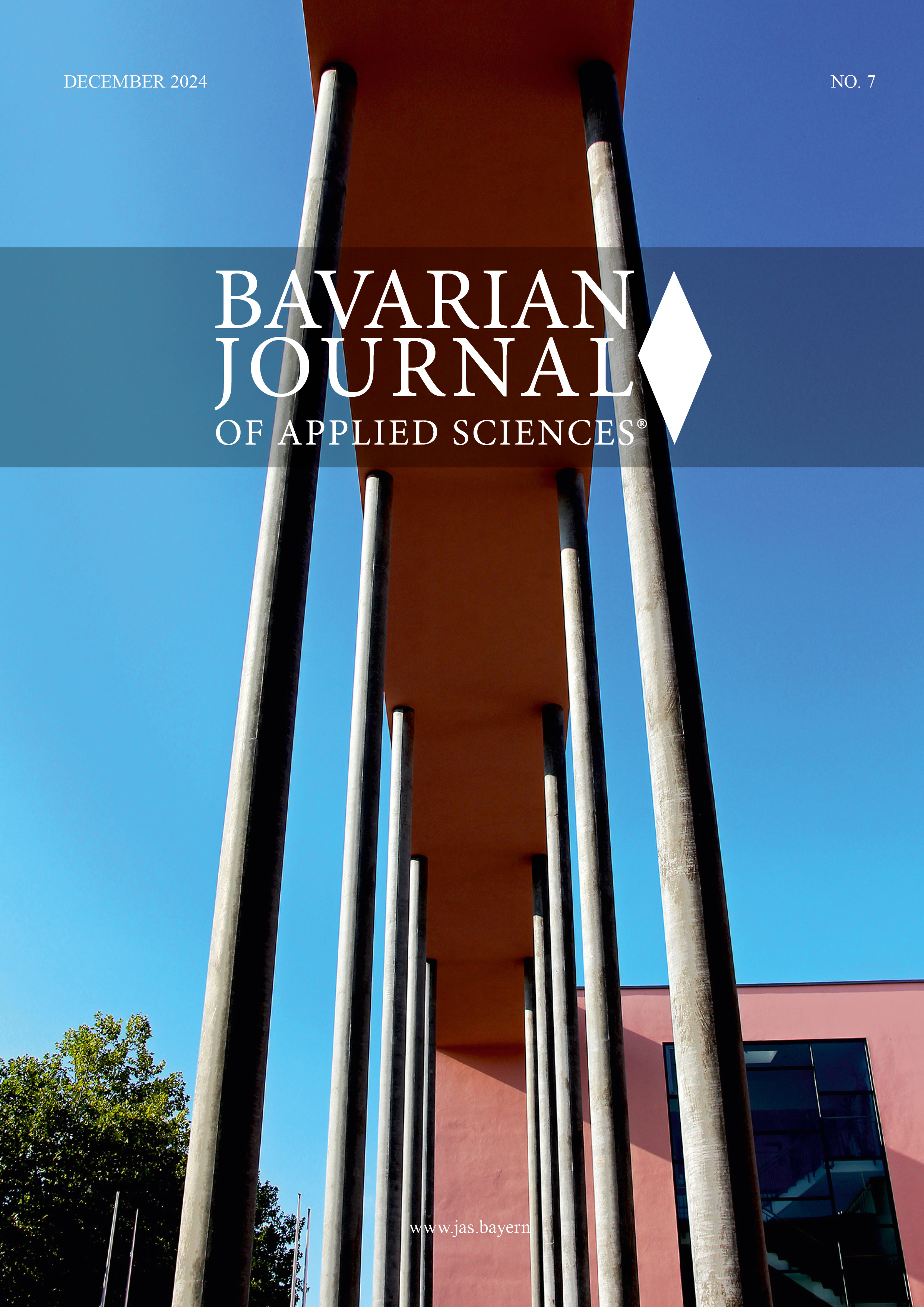Continuing Education Measures for the Development of Future Skills at Universities: A Summary of the Empirical Analysis for East Bavaria in the Context of the Changing World of Work
Hauptsächlicher Artikelinhalt
Keywords
Abstract
The dynamic work environment increasingly necessitates the development of future skills, pivotal competencies attainable through part-time continuing education at universities. In East Bavaria, a rural region marked by diverse challenges, providers of continuing education should devise measures to impart future skills, with innovative didactic methods playing a crucial role. This study analyzes the needs of professionals in the region, deriving concepts for academic training. A quantitative online survey involving 396 East Bavarian participants identifies key future skills, providing initial guidelines for continuing education. Survey results are condensed and expanded through a mixed methods approach, incorporating qualitative insights from interviews with five experts. Resilience, dialogue and conflict competency, problem-solving ability, and digital literacy emerge as central future skills. The development of training for these competences should take into account the different needs of the target groups. Short, three-month blended learning formats without prerequisites or with relevant professional experience are recommended. Didactic approaches should emphasize practical relevance, transferability, and action orientation. Problem- and project-based methods, promoting exchange, are suitable, and a methodological mix can support future skills development. The role of educators is evolving towards mentors and coaches. This work substantiates existing theories and empirical evidence on target group orientation and didactic methods, providing insights for further research and practical applications. It is recommended that universities expand future skills training offerings and facilitate a combination of formal and informal programs for increased flexibility.
Die dynamische Arbeitswelt erfordert zunehmend die Entwicklung von Future Skills, die durch berufsbegleitende Weiterbildung an Hochschulen erworben werden können. In Ostbayern, einer ländlich geprägten Region mit vielfältigen Herausforderungen, sind Weiterbildungsanbieter aufgefordert, Maßnahmen zur Vermittlung von Future Skills zu konzipieren, wobei innovative didaktische Methoden eine entscheidende Rolle spielen. Die vorliegende Studie analysiert den Bedarf der Fachkräfte in der Region und leitet daraus Konzepte für die wissenschaftliche Weiterbildung ab. In einer quantitativen Online-Befragung mit 396 Teilnehmerinnen und Teilnehmern aus Ostbayern werden wesentliche Future Skills für die Zukunft identifiziert und erste Ansätze zur Konzeption von Weiterbildungsmaßnahmen abgeleitet. Die Ergebnisse der Befragung werden im Sinne eines sequenziellen und integrativen Vorgehens im Mixed-Methods-Ansatz mit einer qualitativen Studie verdichtet und erweitert, wobei qualitative Erkenntnisse aus
Interviews mit fünf Experten berücksichtigt werden. Als zentrale Future Skills kristallisieren sich Resilienz, Dialog- und Konfliktfähigkeit, Lösungsfähigkeit und Digital Literacy heraus. Bei der Entwicklung von Weiterbildungsmaßnahmen für diese Kompetenzen sollten vielfältige Bedürfnisse der Zielgruppe berücksichtigt werden. Empfehlenswert sind kurze, maximal dreimonatige Blended-Learning-Formate ohne Vorkenntnisse oder mit einschlägiger Berufserfahrung. Bei den didaktischen Ansätzen sollten Praxisbezug und -transfer sowie Handlungsorientierung zentral sein. Problem- und projektorientierte Methoden, die den Austausch fördern, sind geeignet, und ein Methodenmix kann die zukünftige Kompetenzentwicklung unterstützen. Die Rolle der Lehrenden entwickelt sich hin zu Lernbegleitern und Coaches. Die vorliegende Arbeit untermauert bereits existierende Theorien und empirische Belege zur Zielgruppenorientierung sowie zu didaktischen Methoden und liefert Erkenntnisse für die weitere Forschung und die praktische Anwendung. Es wird empfohlen, dass die Hochschulen ihr Angebot an wissenschaftlicher Weiterbildung erweitern und eine Kombination aus formellen und informellen Programmen anbieten, um die Flexibilität zu steigern.


